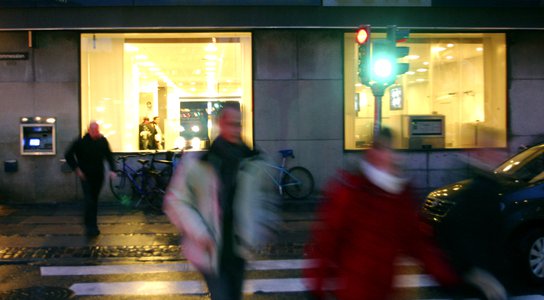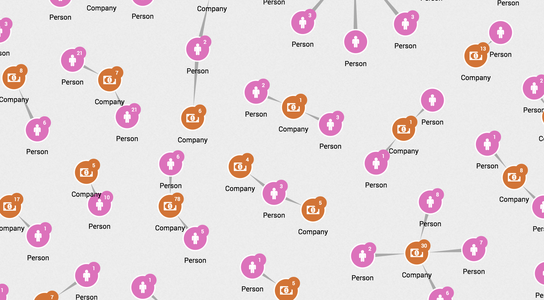The UK Government is failing to act on fundamental gaps with its company register leaving UK companies as a vehicle of choice for money launderers, the corrupt and other criminals.
Today Global Witness exposes how a lack of checks on company owners - known as People with Significant Control - by Companies House and enforcement of rules mean criminals can continue to exploit loopholes and submit false information with impunity.
Using the open data nature of the register, Global Witness analysis found:
- 336,224 companies simply say they have no beneficial owner (which is legal, if no individual owns more than 25% of the company)
- 6,711 companies are controlled by a beneficial owner who themselves control over 100 companies, suggesting that these individuals could be nominees - not the real beneficial owners at all'
- 487 companies are part of circular ownership structures, where they appear to control themselves
- 8,872 companies name another foreign company as their ultimate owner, which is unlikely to meet the requirements.
Read the entire report here: Getting the UK's House in Order, 1MB, pdf
Find out more about our methodology here.
The Global Witness report follows on from a similar analysis carried out by Global Witness last year and comes after a series of new money laundering scandals involving UK companies and partnerships, including the Danske Bank scandal and the Troika Laundromat.
“The fact that critical information on company ownership is accepted at face value, without even the requirement for basic ID checks, hugely undermines the fight against corruption and money laundering. While the UK is a world leader in the way it makes information available to the public on its companies, the register will only prove its worth if people can trust the information and criminals are actually deterred from using UK companies in the first place,” said Nienke Palstra, Anti-Corruption Campaigner at Global Witness.
“If the UK is serious about changing its reputation as a safe haven for dirty money the Government must fix the company register by giving Companies House a clear mandate and resources to do its job. Today’s consultation on reforming Companies House is a welcome step and unique opportunity for Government to address the problem at its root, but the devil will be in the detail.”
Global Witness analysis also uncovers thousands of companies associated with red flags for money laundering and other financial crime. While they don’t indicate wrong-doing in themselves, they should serve as a starting point for further scrutiny, with Companies House being in a unique position to identify, investigate or refer these companies on to law enforcement. Red flags revealed by Global Witness’ analysis include:
- 2,083 company owners are disqualified directors - people who previously failed in their responsibilities
- 1,519 company officers or PSCs are politicians - who as a result of their public positions may be at greater risk of corruption
- 136,682 officers or PSCs are based in secrecy jurisdictions e.g. British Virgin Islands
- 228,295 companies are registered at a company factory or mailbox address, with little or no connection to the actual place of business or owner.
/ ENDS
Contacts
Notes to editor:
- The UK’s register of Persons of Significant Control was set up in 2016 to prevent money laundering and corruption by bringing the real owners of a company into public view.
- According to the National Crime Agency, money laundering impacting the UK is estimated to run into the hundreds of billions each year.
- Since the Government removed the paywall, the UK’s company register was accessed over 2 billion times in one year, and beneficial ownership information alone was accessed 0.5 million times within one month, demonstrating the significant and growing demand for this type of company information.
- People may be tempted to use this analysis to argue that a public register of beneficial ownership is not a valuable tool in the fight against corruption and money laundering. This would be the wrong conclusion. We cannot understate the importance of having this information in the public domain - particularly as open data. A verified and properly enforced public register can make a huge difference in ending anonymous companies. None of Global Witness’ analysis would have been possible were it not for the open nature of the register and it is only because it is public that we are able to identify these weaknesses. See also the full briefing for information on the positive impacts of the register, including a major drop in the incorporation of Scottish Limited Partnerships - which became notorious in recent years for their use in international crime - and a boost for public interest journalism.
- All 28 EU countries and the British Overseas Territories are now required to set up similar public registers by 2020 and 2023 respectively. The British Overseas Territories includes the likes of the British Virgin Islands and Cayman Islands. Over 50% of the companies revealed in the Panama Papers were registered in the BVI.
You might also like
-
Blog post UK Government’s ‘no-questions-asked’ approach to companies gives money launderers a free pass
One year since our biggest-ever analysis of the UK company register, we did it again and found thousands of companies can still avoid revealing their real owners or have money laundering risks associated with them
-
Blog post Can the EU learn from the Azerbaijani Laundromat scandal in helping tackle anonymous company ownership?
The major money laundering and lobbying scheme involving Azerbaijan’s ruling elite, the latest in a series of leaks uncovered by OCCRP, points once again to how easy it is for corrupt individuals to gain access to the EU financial system and launder suspect funds using anonymous companies to spend on luxurious lifestyles.
-
Blog post How we mined the world’s first open data register of company control
Last week we published the findings from our in-depth analysis of the world’s first open register of who controls companies. The Companies We Keep shows that two-years on the UK register of beneficial owners is having an important impact